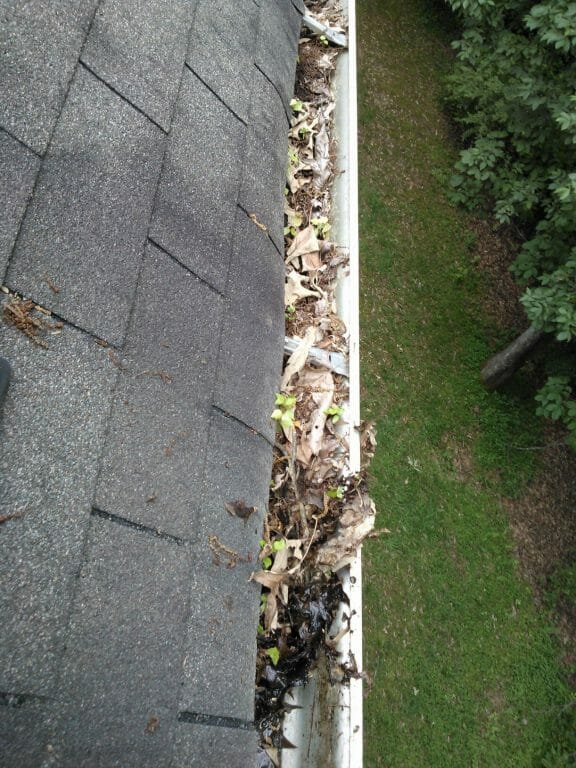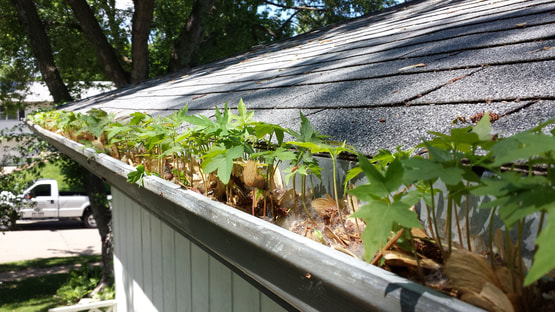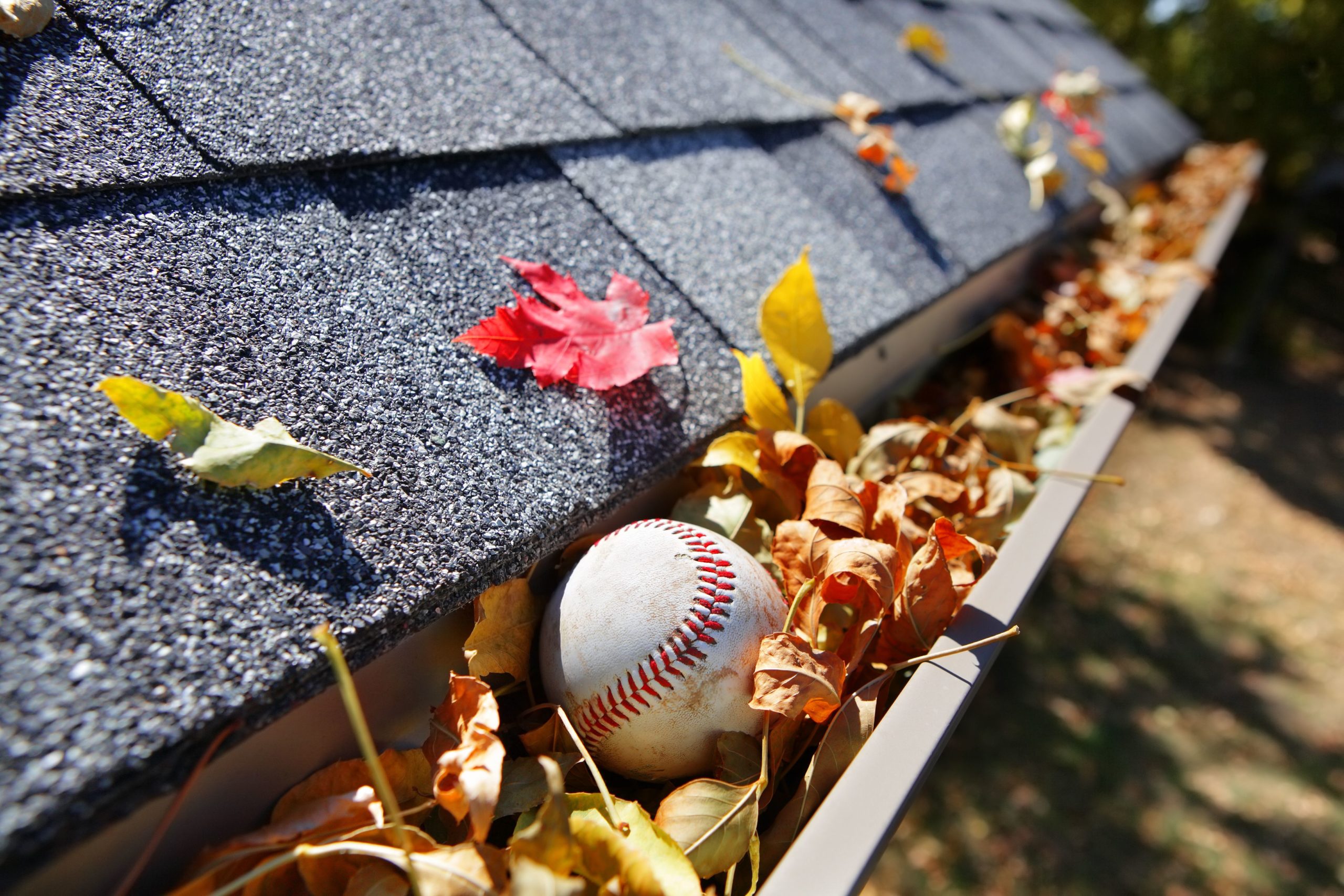Clogged gutters can cause extensive and expensive home repairs if left unchecked. You can avoid…

Keeping your gutters clean is an essential part of maintaining your home. Clogged gutters can lead to water damage, foundation issues, flooded basements, and damage to siding and landscaping. By having your gutters cleaned regularly, you can avoid these problems and keep your home in good shape. But how long should a typical gutter cleaning take?
“How long should it take for my gutters to be cleaned?” If you want to plan your schedule around having your gutters cleaned and want to be present to observe the cleaning company while still managing to do your errands, here are the possible work timeframes that you can expect:
An average-size home (approximately 2,000 square feet) on a roof maintenance program where gutters are cleaned every year should take about 30 to 45 minutes, depending on how dirty they are.
Gutters that haven’t been maintained can take up to an hour or an hour and a half. If it’s a larger home, it can take up to an hour to 2 hours.
If there’s a lot of ladder work, it will take much longer. Since workers do have to access the roof to clean the gutters, cleaning companies should take all safety precautions.’
Remember that the more you have a gutter cleaning, the less work it is and the shorter it will take. So make sure you get your gutters cleaned frequently!
When estimating the time for a gutter cleaning, professionals consider several factors:
- Size of Home – Larger homes with more linear feet of gutters logically will take more time to clean than smaller homes. The total length of gutters, number of downspouts, and overall roof size impact cleaning time. Homes with interrupted or varied roof lines such as gables and multiple levels will also take more time to clean
- Pitch of Roof – Steeper roofs are more challenging and dangerous. Cleaning crews must work slowly and deliberately on steep pitches. Flat or nearly flat roofs are much quicker and easier to clean.
- Amount of Debris – Gutters filled with leaves, sticks, moss, and other debris take longer to clean out. A light amount of debris is quicker than heavy clogs. When gutters haven’t been cleaned in years, the amount of built-up gunk can significantly add time. Homes with large amounts of debris could also have downspouts packed with debris, in this case more time is needed to clear downspouts for optimised water flow.
- Accessibility – Multi-story homes require more ladder work and safety rigging. Walkable single-story roofs are ideal for fast gutter cleaning. Proximity to power lines and other obstructions can also hamper access.
- Weather Conditions – Cleaning gutters is fastest in dry weather without dealing with rain, wind, extreme heat, or cold. Inclement weather may cause delays.
- Overall Condition – Gutters in disrepair with rust, damage, or leaks add extra time for repairs. Well-maintained gutters in good condition are quicker to clean.
- Crew Size – More gutter cleaners onsite can reduce the total cleaning time compared to a solo worker. But a large crew on a small home may not save much time.
- Equipment Used – Power washing, commercial grade wet/dry vacuums, and large debris scoops optimize efficiency. Manual cleaning takes considerably longer.
- Frequency of Cleaning – Doing gutter cleanings at least semi-annually ( more frequently, depending on your climate and tree coverage) prevents heavy buildup and reduces cleaning time. Infrequent cleaning leads to significant clogs.
In summary, a routine annual gutter cleaning for an average single-family home with accessible gutters in good condition should take 30-45 minutes with a 2-3 person professional crew. Of course, every home’s situation is unique, so times may vary. The key is to get on a regular maintenance schedule. The small time investment for a quick yearly cleaning is well worth it to protect your largest investment – your home.
Here are some additional tips related to the time and process of gutter cleaning:
- Schedule Cleanings Seasonally – The optimal times to clean gutters are spring and fall. Schedule cleanings after seasons with heavy debris like leaves, needles or tree pollen.
- Cluster Cleanings – If you have multiple properties, clustering cleanings together by area saves travel time between jobs.
- Check Ground Conditions – Ensure ladders can be safely positioned without sinking into soft ground. Frozen, muddy, or sloped terrain may require rescheduling.
- Inspect Cleaning Thoroughly – Provide any feedback on specific clogged areas after the cleaning so the crew knows where to focus next time.
- Clean other parts of your home as well – Since the crew is already on site, have them clean your roof, pressure wash your driveway and walkways, your siding, and your windows.
Remember, cleaning gutters is dirty, tiring work. Be patient and allow ample time for a thorough, quality job. Rushing increases the risk of accidents. A safe, complete cleaning often takes longer than homeowners expect. But regular professional cleanings catch problems early and prevent costly home repairs down the road.



